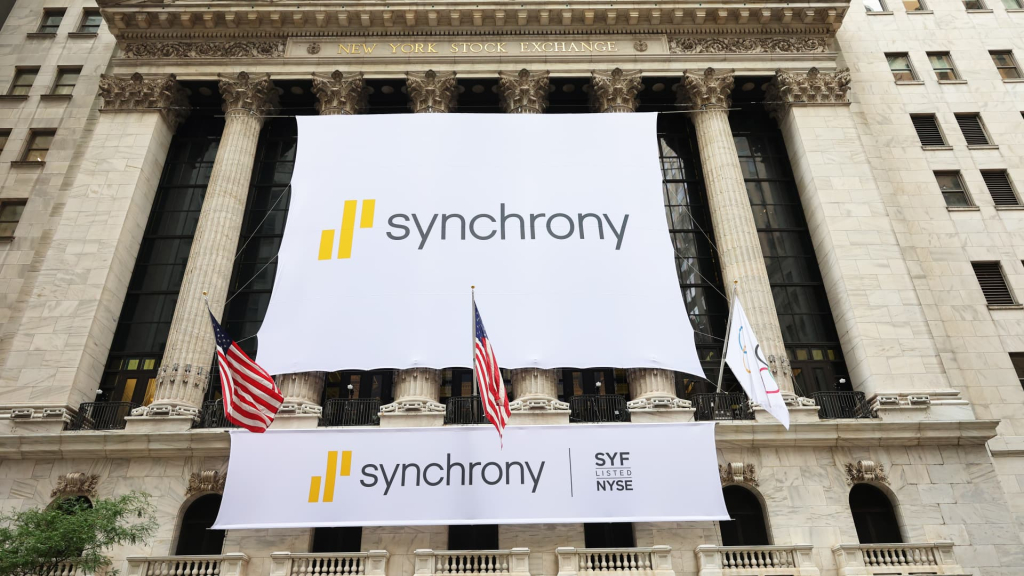In the past year, banks rapidly increased interest rates to unprecedented levels and introduced new monthly fees on credit cards in response to a Consumer Financial Protection Bureau (CFPB) rule that threatened a significant revenue stream for the financial sector.
Currently, however, they are hesitant to reverse these measures, even after bank trade organizations successfully challenged the CFPB regulation in federal court last month.
Executives from Synchrony and Bread Financial, major players in the issuance of branded credit cards for companies like Amazon, Lowe’s, and Wayfair, indicated during recent conference calls that they will maintain the elevated rates.
“We feel pretty comfortable that the rule has been vacated,” Synchrony CEO Brian Doubles stated on April 22. He added, “We don’t currently have plans to roll anything back in terms of the changes that we made.”
Ralph Andretta, the CEO of Bread, reflected a similar sentiment. “At this point, we’re not intending to roll back those changes, and we’ve talked to the partners about that,” he remarked.
Both CEOs welcomed the invalidation of the proposed CFPB regulation aimed at capping credit card late fees, a move the industry criticized as an overreach of regulatory authority. The CFPB’s previous leadership estimated that the rule would save families approximately $10 billion a year. However, the unintended consequence saw borrowers facing higher rates and fees for paper statements as credit card companies sought to offset expected revenue losses.
According to a Bankrate survey, average interest rates on retail cards reached a record high of 30.5% last year, with rates remaining near those levels into this year.
“The companies have made a windfall,” commented David Silberman, a banking attorney and Yale Law School lecturer. “They didn’t think they needed this revenue before except for [the CFPB rule], and they’re now keeping it, which is coming directly out of the consumer’s pocket.”
Despite worries about an impending economic downturn, Synchrony and Bread reported strong first-quarter profits that exceeded market expectations, leading analysts to increase their earnings forecasts for the year.
Retailer Lifeline
While store credit cards represent a small fraction of the overall credit card market, they are often relied upon by financially struggling consumers and serve as a significant source of profit for major U.S. retailers.
The CFPB reported that over 160 million retail card accounts were open last year, as detailed in a December report highlighting the risks associated with these high-interest products.
More than half of the top 100 U.S. retailers offer store cards, with notable brands such as Nordstrom and Macy’s attributing about 8% of their gross profits to these cards, the CFPB noted.
Banks appear to be capitalizing on the fact that many retail card users lack the credit profiles to qualify for general-purpose cards from institutions such as JPMorgan Chase or American Express, according to Ted Rossman, a senior analyst at Bankrate.
Almost half of all retail card applications come from individuals with subprime or no credit scores, and these card companies tend to approve applications at higher rates than for general-purpose cards, the CFPB reported.
“Companies like Bread and Synchrony depend much more on consumers who carry balances or pay late fees,” Rossman noted.
Since peaking in early 2024, interest rates on retail cards have dropped by less than 1% on average and remain about 10 percentage points higher than those for general-purpose cards, according to Rossman.
This trend indicates that other substantial players in the retail card space, including Citigroup and Barclays, are unlikely to decrease their rate increases following the CFPB’s rule change. The Macy’s card, issued by Citigroup, currently has an annual percentage rate (APR) of 33.49%, for example.
Representatives from Citigroup and Barclays did not provide comments for this article.
Debt Spirals
Brian Doubles of Synchrony offered insight regarding the banks’ hesitance to retract their rate hikes, suggesting that either consumers did not notice the increased interest rates or felt they had no alternative.
Retail cards are commonly promoted online or at checkout counters in stores, often enticing consumers with promotional discounts or rewards programs.
“We didn’t perceive a significant decline in accounts or spending as a result of the changes made last year,” Doubles indicated during a recent analyst call. “We conducted extensive test and control analyses regarding this.”
Synchrony plans to discuss potential changes to its card offerings with brand partners, which may include enhancing promotional deals at specific retailers, according to a spokesperson from the bank based in Stamford, Connecticut.
“Our objective remains to offer financial solutions that provide flexibility, utility, and significant value to the diverse customers, partners, providers, and small to midsized businesses we serve,” Synchrony indicated in a statement.
A spokesperson for Bread declined to comment on this matter.
Financial coach Alaina Fingal from New Orleans frequently advises clients who have found themselves caught in a cycle of debt from using retail credit cards. Many resort to side jobs, like driving for Uber Eats, to manage their outstanding balances.
“Consumers often do not fully grasp the terms associated with these cards, which frequently include promotional offers that may contain deferred interest clauses,” Fingal explained. “It’s incredibly predatory.”


























